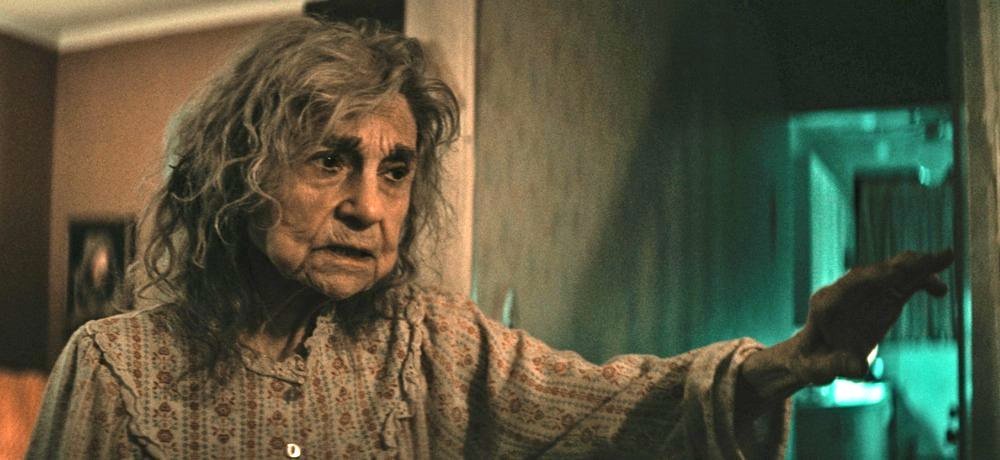Western supernatural movies have long been associated with Christian themes and imagery, from The Exorcist, to last year’s Hereditary, to the entire Conjuring universe. But there's an exciting new voice playing in the possession subgenre: writer-director Keith Thomas, whose directorial debut, The Vigil, enters the horror game with a strong statement that shows the importance of new perspectives, even if the scares are not the most effective.
The Vigil is essentially a one-man show that follows Yakov (Dave Davis), a young man who recently quit the Orthodox and strict Hasidic community of Boro Park in Brooklyn. He now attends a support group to learn the ways of secular Jewish life. Though he’s slowly acclimating, he still has a lot to learn--as exemplified by his awkward attempt to ask out a girl in the group. Unfortunately, Yakov is not only running short on faith, but funds. This leads him to reluctantly accept the responsibility of serving as an overnight shomer, watching over the dead body of a member of the community until it gets taken off for burial.
Alone all night ina badly lit room, with nothing but the recently deceased, and the ailing but ominous widow to keep him company, Yakov soon finds himself with more on his plate than he accounted for, as there is something evil haunting the dead body, and it wants a new host.
Though The Vigil begins with a title sequence that evokes the same settling unease as The Exorcist, the film does not retread old ground with its scares. As Yakov settles in for the night, he starts having flashes to a terrible event that led to his estrangement from the Hasidic community. The film explores the divide between the Orthodox and secular communities, the prejudices and violence faced by both groups, and how hard it is to have to repress part of one’s identity.
Those who aren’t familiar with Jewish culture and mythology may need a minute to catch up with some of the rituals, imagery, or situations presented. The Vigil doesn’t take time to explain every tradition or symbol to the audience--and that’s OK. There is a universality to Yakov’s journey of embracing his identity that will resonate with everyone who has ever had to hide part of themselves.
When it comes to the horror, cinematographer Zach Kuperstein helps create an eerie atmosphere with exquisitely shadowed lighting that throws Yakov deep into the dark pit that is the house where his shomer takes place. Kuperstein makes every source of light feel precious, from a single candle in the background to Yakov’s phone. And once the diabolical entity haunting the vigil starts to show itself, the film enters a showdown of bone-twisting madness that will leave you with nightmares about your body being turned into a pretzel.

Dave Davis deserves huge praise for carrying the entire film as its emotional and physical center. The actor portrays Yakov's descent into madness while effortlessly balancing the scares with the emotional journey at the center of the movie. Davis is a force to be reckoned with.
Unfortunately, writer-director Keith Thomas relies too heavily on jump-scares emphasized by loud, sudden noises that undermine the already thoroughly creepy atmosphere. At a time when audiences are starting to get tired of the same old scare tactics, it's disappointing to see a film not even try for something more subtle. After about 15 minutes you’ll get completely desensitized, rendering the rest of the scares deadened, along with your hearing.
The Vigil probably won’t be a new horror phenomenon, as its scares are repetitive and tiresome. But what the movie excels at is at exploring themes of Jewish identity and culture, not only presenting a new and fresh perspective on an old subgenre, but introducing a vast mythology that could easily span a horror franchise of its own.